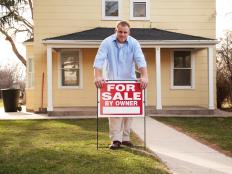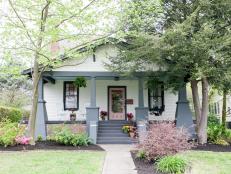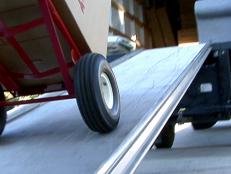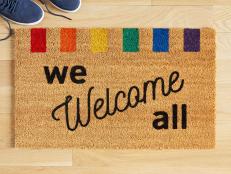5 Do's and 5 Don'ts for Flipping a House
Flipping a house comes with big risks, big rewards and big questions. Wondering where to buy and how much to DIY? Property expert Egypt Sherrod shares her top rules for first-time flippers.

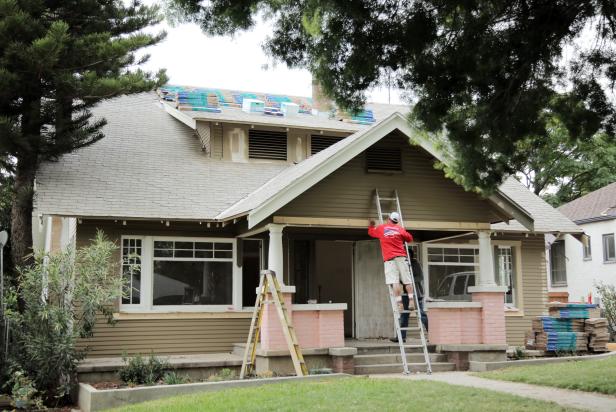
Don't Buy the Best House on the Street
It's easier to change the house than it is the neighborhood. "I think it’s a mistake to buy and try to flip a property in a troubled neighborhood where every other home on the street is in disrepair," Egypt says. "Why? Because once you beautify the home, you still need to sell it. But if the street is awful, or if the area has no growth potential, chances are buyers will not bite. Don’t be the guinea pig by being the first investor on a bad block."
But Do Shop in Up-and-Coming Areas
Location is key to selling a property — so how do flippers know they’re getting a good one? "I often look for dilapidated homes on nice or up-and-coming blocks," Egypt says. When you drive around the neighborhood, look for homes under renovation to see if other people investing in the area. New restaurants and stores in the area are another good sign. Check with the local municipality to see if they have any plans for the neighborhood. If things like new playgrounds, sidewalks and repaved roads are on their agenda, it means the city/town is also interested in investing in the area.
Do Consult Contractors Before You Buy
"A smart way to go about your flip is by taking your contractors with you as you first tour the property so they can give you estimates on repairs immediately," Egypt says. "This way, you are not fishing around for estimates AFTER you’ve already purchased the property." This cuts down on renovation surprises — always a good thing!
Don't Ignore the Warning Signs
Especially for first-time flippers, some homes are just too far gone. Egypt's advice? Pass on houses with severe water damage or foundation issues, and consult a professional before you buy a home with mold or asbestos.
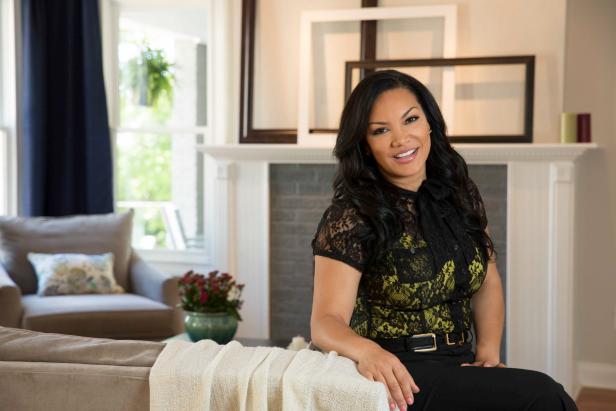
Bob Mahoney
Egypt Sherrod in a freshly flipped living room.
Don't Hold the House Too Long
Egypt's perfect timeline: "I always say 60 days!! Thirty days for renovation and 30 days to market and sell. After that, the bills and holding costs start adding up and eating into your profit."
Don't Oversell Your DIY Skills
Sweat equity — as in, long hours spent on DIY remodeling projects — can lead to a bigger profit margin, but only if the work happens quickly and looks as good as a professional job. Egypt's advice? Be realistic about your skills. "It definitely pays to do some of the grunt work yourself and put in some good ole’ sweat equity," she says. "But it’s important to know which projects you can handle yourself versus which ones call for the professionals. I learned the hard way when I was on the roof of my first investment property and one leg fell through the roof. I really had no business up there!"
Do Try Your Hand at Simple DIY Projects
Simple DIY projects are a great way to save money and hone your skills for future flips. "Projects you can do yourself are things like painting, tiling, landscaping, demolition of walls, cabinetry and old flooring," Egypt says.
Do Call a Pro for the Big Stuff
"Leave electrical and plumbing work to the licensed and qualified technicians as well," Egypt says. The same goes for structural work, like wall removals or additions. Sure, you'll pay a premium for a professional, but the potential risks of a bad DIY job can be even more costly: Think structural issues, water damage, fire risk and failed inspections.
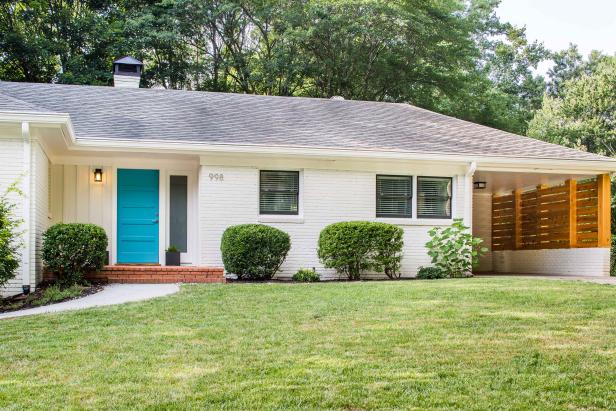
Jeff Herr Photography
Don't Fall in Love With the House
"First-time investors often get emotionally attached to their investment, which is a no-no," Egypt says. "I understand that you’re proud of yourself and you want to do a great job flipping, but you gotta keep your eye on the prize!"
Do Think Like an Investor
Pick a budget and stick to it — no matter how shiny those fancy light fixtures look! "The main goal is to make money and increase profit margin," Egypt says. "Often newbies want to put pricey upgrades in and make aesthetic decisions that add up in the end." Make smart, buyer-friendly splurges, like solid-surface countertops and hardwood floors, as the budget allows.
The 10 Hottest US Housing Markets of 2021 11 Photos
Real estate experts predict the top 10 housing markets for 2021. Did your city make the cut?

.-Battle-on-the-Beach-courtesy-of-HGTV.-.jpg.rend.hgtvcom.196.196.suffix/1714761529029.jpeg)









